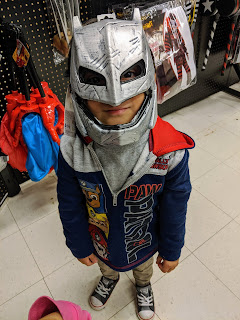The Kingdom of Heaven Belongs to Such as These
Being a stay-at-home parent was, without a doubt, one of the hardest things I’ve had to do. Now during this time of quarantine, my husband still leaves the house for work everyday. I am back in this place again, with all of the isolation it brings and the feeling of wanting some breathing room. It’s as if God is telling me, “Face this.”
It’s difficult to explain to those who are less introverted why something like staying home with kids would be so difficult for me. I fall on the extreme end of the introversion spectrum. Ideally, I would have 3 hours of alone time every single day. And even that can be pushing it. It might sound antisocial, but my mental health truly depends on being alone quite often.
Combine this calm, introverted temperament with what Dr. Mary Sheedy Kurcinka calls a “spirited child,” and you end up with a parent-child relationship that is constantly making demands of itself. My son absolutely fits the definition of a spirited child. I’ve had people recommend to me that he be evaluated for neurological disorders (i.e. ADHD, ODD, etc.). But the more I’ve discussed these things with his preschool teachers and learned about his temperament through personal observation, the more I realize he’s a normal kid, whose just a little more difficult. Dr. Kurcinka opens up her first chapter of “Raising Your Spirited Child” with this:
“The word that distinguishes spirited children from other children is more. They are normal children who are more intense, persistent, sensitive, perceptive, and uncomfortable with change than other children. All children possess these characteristics, but spirited kids possess them with a depth and range not available to other children. Spirited kids are the Super Ball in a room full of rubber balls. Other kids bounce three feet off the ground. Every bounce for a spirited child hits the ceiling.”
As I read through the various characteristics she details in the book, different memories of my son flashed through my mind. I remembered the day we were running late and he insisted on putting his jacket on by himself. After several minutes of trying, I finally couldn’t wait any more and put his jacket on him against his will. I pulled him into the car as he screamed in sadness, having had his opportunity to practice a new skill harshly ripped away from him.
He had calmed down during the drive to our destination and remained calm the entirety of the outing. Once we arrived back home, about 2 hours later, my son walked to the exact spot he was standing in when he was trying to put his jacket on. He took off his jacket, dropped it on the floor, waited a second, then picked it up and put it back on. Then he looked at me, wearing an expression that was somewhere between smugness and satisfaction. He had completed the task he had set out to do. Now he could finally relax.
While I’m happy to say that he has improved over the years, he still has his moments where he cannot let go of whatever it was he wanted. He is strong-willed, extremely attention-seeking, and used to throw tantrums that would last 3 or 4 hours, several times a week. He can spend 2 hours running around, only to have about 15 minutes of down time before he begins to feel wound up again. Now I’m not trying to put down my son by any means, but it’s necessary to properly convey my plight in raising him, so as not to be dismissed. Not all kids are equally challenging to raise. Some are easier than others. Some are much harder than others. As I’ve learned, parenting spirited kids requires a special kind of insight and patience.
But it is also a privilege. Children are in fact saints. Their hearts are pure even if they don’t fully understand right from wrong. Their lack of understanding is the very thing that makes them saints. Jesus tells us, “Truly I tell you, unless you change and become like little children, you will never enter the kingdom of heaven. Therefore, whoever takes the lowly position of this child is the greatest in the kingdom of heaven.” Matt 18:3-4. There really is so much to learn from children: their tenderness, their innocence, their joy, their wonder and awe at the world around them. They feel deeply and experience life’s joys and sorrows keenly.
The funny and slightly ironic thing is, I see so much of myself in my son. Some of the characteristics I complain about him having, are ones that I hope he never loses. I want him to challenge authority. I want him to be passionate and tenacious and focused. I want him to be unreservedly authentic.
At the end of the day, I want him to be exactly who he is.






Comments
Post a Comment